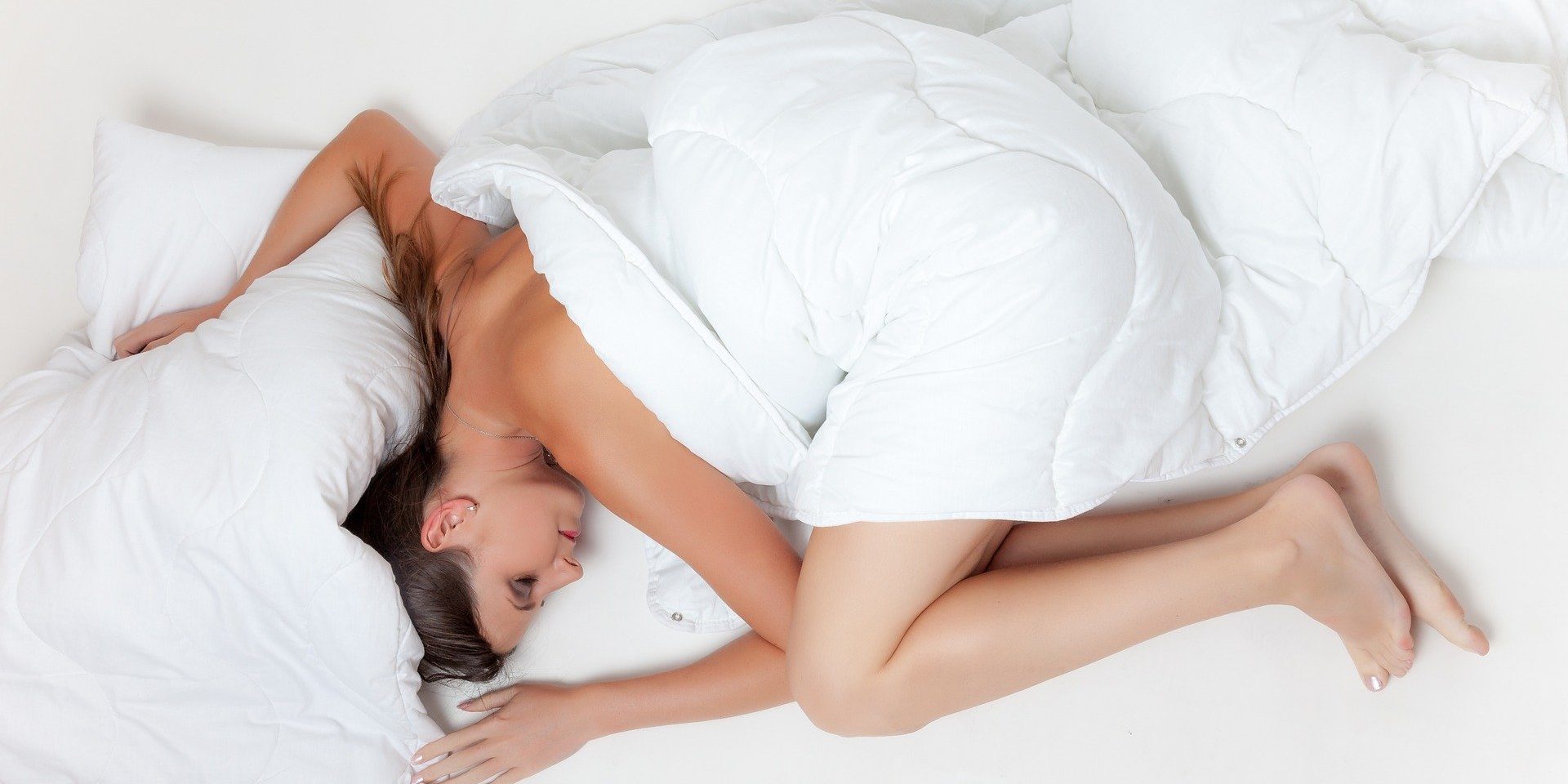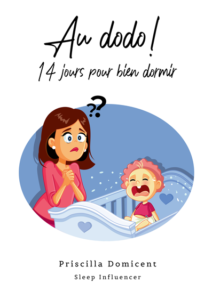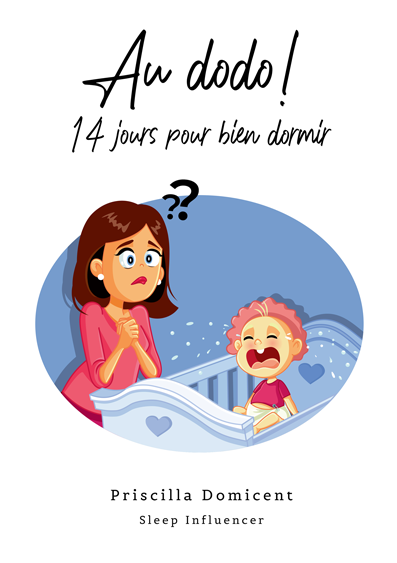Since the coronavirus has spread to nearly all countries, we are permanently reminded the steps to follow to protect ourselves. No more handshaking, frequent and thorough hand washing, coughing and sneezing in your elbow, keeping distance from each other, and staying at home as much as possible.
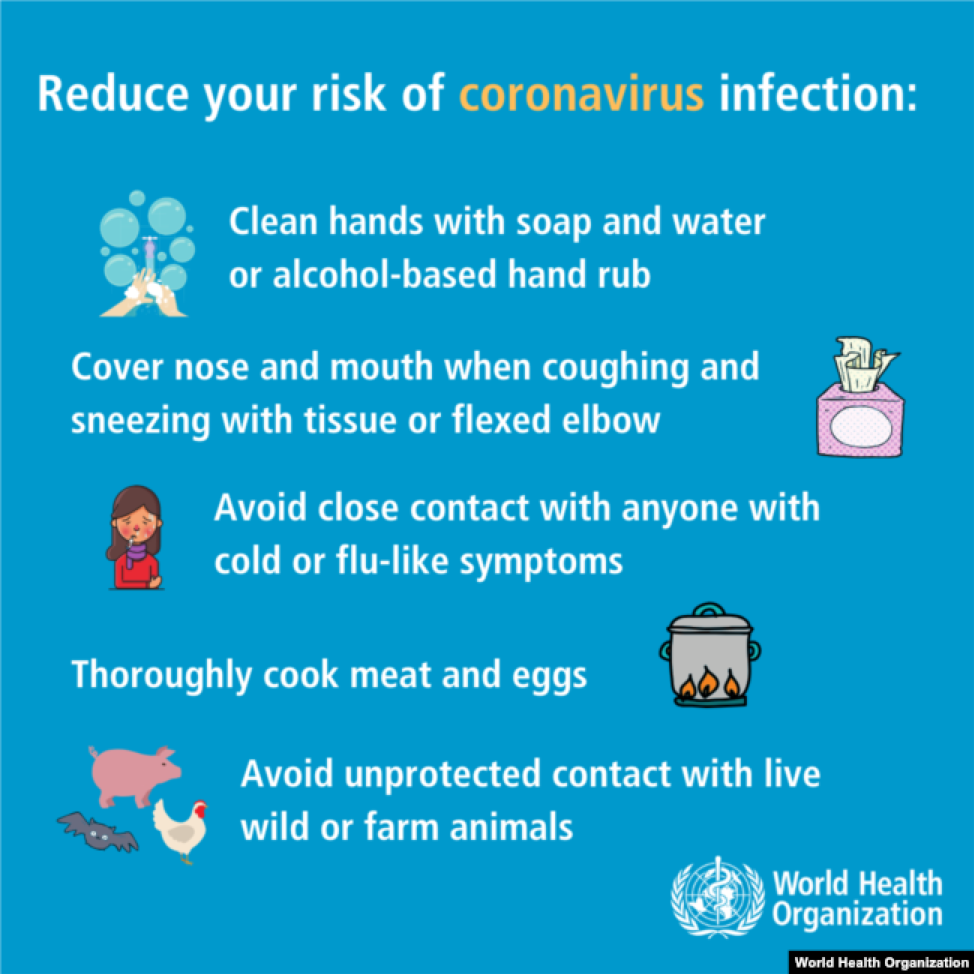
These low-cost measures are unhesitatingly all effective ways to tackle the virus. However, there is one piece of advice often overlooked, even completely left out: sleep well and get enough rest. Getting plenty of good sleep is actually one of the few proven strategies to boost our immune system. So, staying up to follow the news or binge watching your favorite show all night during this pandemic is not a good idea.
Why should you prioritize sleep in the time of coronavirus?
Like a mysterious vitamin S, Sleep allows us to regain energy, stimulate cognitive function, organize memories, prevent depression, help lose weight, and strengthen the immune system. Sleep doesn’t stop us from getting sick, but it does help the immune system protect us as well as possible. The less we sleep, the more likely we get sick after being exposed to a virus. Cytokines are proteins involved in physiological sleep regulation. These are molecules secreted by the immune system to fight the viral or bacterial invader. It also explains why we stay in bed in case of illness. We sleep more until our body has regained strength.
A study from the University of Washington Medicine found that chronic short sleep suppresses immune response. “The immune system functions best when it gets enough sleep. Seven or more hours of sleep is recommended for optimal health,” said lead author Dr. Nathaniel Watson, co-director of the UW Medicine Sleep Center. In addition, German researchers discovered how sleep helps fight infection and can sometimes be a great medicine. According to the study, sleep improves the potential ability of some of the body’s immune cells to attach to their targets.
In extreme cases of sleep deprivation, lack of sleep slowly kills us. More than 20 large scale epidemiological studies all report that cause-effect relationship: the shorter your sleep, the shorter your life. In an article published by the Guardian, Professor Matthew Walker, director of the Center for Human Sleep Science at the University of Berkeley, sounds the alarm and expresses his conviction that we are in the midst of a “catastrophic sleep-loss epidemic”.
How could a lack of sleep impact your life as a parent?
According to the National Sleep Foundation, the average adult needs seven to nine hours of sleep every night. When you sleep fewer hours a night on an ongoing basis, you build up a sleep debt that can be hard to pay back.
Netherlands, New Zealand and France are the top 3 countries on the podium where people sleep the most, with an average of respectively five, four and three minutes more than eight hours of sleep per night. But not all developed economies rest well. Singapore and Japan are the world’s worst countries when it comes to getting a good night’s sleep, sleeping an average of 36 and 29 minutes less than the eight hours taken as the reference. It is likely that cultural and social factors are to blame for short nights.
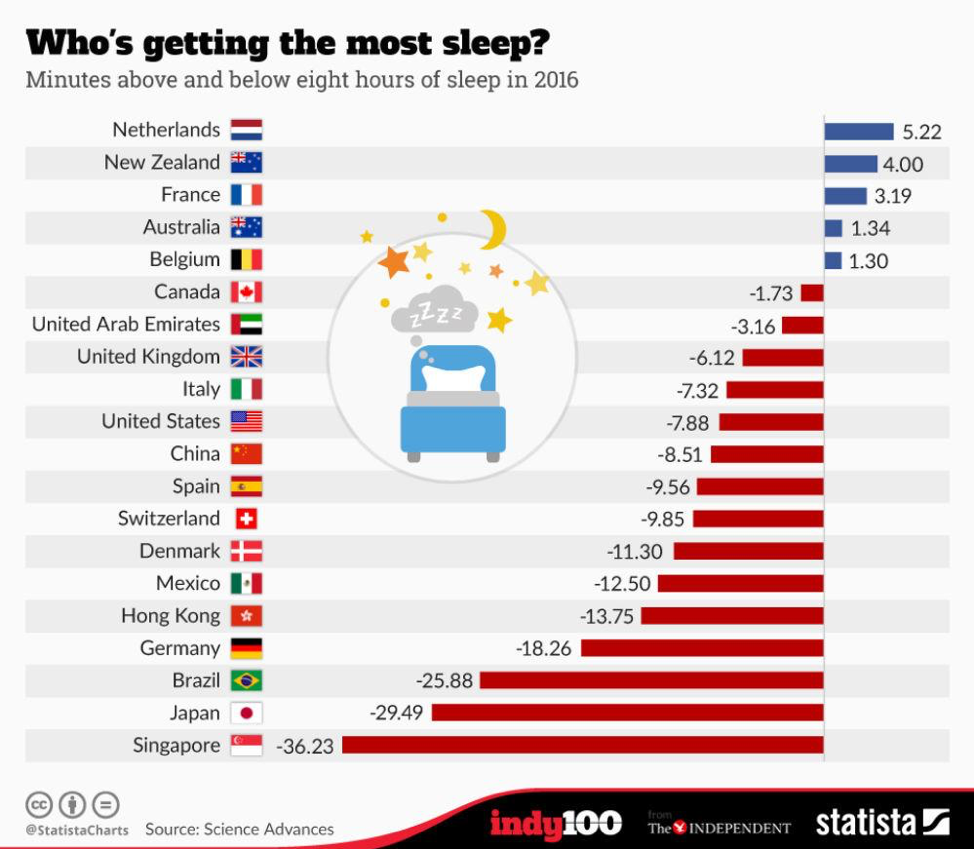
The loss of sleep is a common problem in modern society, affecting many individuals at some point in their lives. Sleep deprivation is caused by consistent lack of sleep or reduced quality of sleep. If your sleep debt persists over time, i.e. you get less than 7 hours of sleep on a regular basis, you can suffer severe consequences affecting your entire life. Occasional sleep interruptions can feel like a nuisance. However, ongoing lack of sleep can cause many adverse effects like excessive daytime sleepiness, emotional difficulties, poor job performance, obesity and a lowered perception of quality of life.
As mentioned above, sleeping too little breaks your immunity down, leaving you more likely to get sick. As a parent, you very well know that this is something you wish to avoid at all costs. Being sick is simply inconvenient when you have a child; you cannot take care of your child well, and in the worst-case scenario, your child could also get the bug. Depriving yourself of enough deep sleep weakens our immune response to intruders. So, health care and grocery employees working double or triple shifts are currently so much more vulnerable, and not just because through exposure to the coronavirus.
According to research, sleep deprivation is also linked to a higher mortality risk. An individual sleeping on average less than six hours per night has a 13% higher mortality risk than someone sleeping between seven and nine hours. An individual sleeping between six and seven hours per day still has a 7% higher mortality risk. Unfortunately, tragedies remind us how vital sleep is. In 2015, a man dies in Taiwan after 3-day online gaming binge. In 2018, a western Pennsylvania father fell asleep with his 1-month-old son on his chest. Smothered by dad’s body, the infant had stopped breathing. In Florida, a 9-month-old baby died last year because he left alone in bath and drowned while parents sleep.
Based on a research conducted about the sleeping habits of people from across the UK, it appears that parents are getting just 5.1 hours of sleep per night in the first year of their child’s life. This means that they lose a total of 44 nights during that period. Due to the insufficient proper sleep new parents are usually getting, they could be considered as a vulnerable COVID-19 risk group. The National Sleep Foundation states that, “insomnia in parenthood can come from having to multitask and balance busy lives. Lying down in bed brings spinning thoughts of to-do lists and worries about family matters, both small and large”.
 The inability to disconnect is not the only reason for sleep challenges. Research conducted by the University of Berkeley with 2’000 parents, focused on the impact of a child’s sleep on the parental balance. It revealed that parents sleep an average of 6 hours per night and have a hard time managing the lack of sleep.
The inability to disconnect is not the only reason for sleep challenges. Research conducted by the University of Berkeley with 2’000 parents, focused on the impact of a child’s sleep on the parental balance. It revealed that parents sleep an average of 6 hours per night and have a hard time managing the lack of sleep.
30% of divorced or separated parents mention that the main reason that triggered their separation is the sleepless nights caused by their baby crying. Beyond an insufficient duration of sleep for the young parents, it is the duration of uninterrupted sleep which is invoked. At least 5 hours of uninterrupted sleep would be needed to properly concentrate and, among other things, prevent postpartum depression.
Of those surveyed, 11% admitted to pretending to sleep when their baby’s crying wakes them up, leaving their partner to care for the child. The same number of parents decide to close the door, to stop hearing the screams. According to psychiatrist Bernard Geberowicz, 100% of parents experience turbulence when their first baby arrives. He also states that 20 to 25% of couples break up after four or five years of cohabitation, which often coincides with the beginnings of parenthood. This is linked to the numerous symptoms of sleep deprivation, such as irritation, depression, and getting defensive more easily when running on little to no sleep.
Postpartum depression, referring to the depression some mothers deal with after giving birth, has now reached a 1/7 women rate. This has also been closely linked to sleep deprivation. More specifically, women who get less than 5 hours of sleep on a constant basis are at a higher rate of suffering from postpartum depression. This perinatal mood disorder can lead to severe marital or relationship problems.
Read: Understanding postpartum depression
Restricted sleep has also negative effects on our facial appearance and social appeal according to research carried out by the Royal Society Open Science. The results showed that study participants were less inclined to socialize with individuals who had gotten insufficient sleep. Furthermore, sleep-restricted participants were perceived as less attractive and less healthy.
Why is sleep also crucial for your baby?
Science tells us that if we get the appropriate number of hours of sleep, it helps the learning process, increases our ability to concentrate, aids metabolism and weight control, reduces irritability and impatience, decreases the risk of suffering from depression and strengthens our immune system.
Similarly, healthy sleeping habits are essential to promote children’s cognitive, behavioral, emotional and physical development. By providing your child’s brain sufficient sleep, she will learn better by maximizing her concentration capacity, will be less likely to go through mood swings, happier, healthier and successful. From an early age, you can help your child develop a good foundation for peaceful nights. A healthy sleep hygiene starts early in life (Read: What is a healthy sleep hygiene?).
Here are a few reasons, among others, that explain why sleep is essential for little ones:
- Researchers have found that sleep and the circadian system are strong regulators of immunological processes. Insufficient sleep weakens the immune system’s ability to fight off short-term, chronic and acute health problems.
- Babies need sleep to physically grow. It is during the night that growth-related hormone is produced.
- The human brain is developing until around the age of 21. Thanks to sufficient sleep until then, a child will help reach her full potential. Sleep boosts her attention and concentration, helping her learn new skills. According to the medical journal Sleep “short sleep duration in the first three years of life is associated with hyperactivity/impulsivity and lower cognitive performance on neurodevelopmental tests at age 6.”
- Sleep is prime time for the brain to process, transform and store learned material. Dreams allow babies to process daytime emotional experiences and memorize events.
- According to Patrick McNamara, Ph.D., dreams (during the REM stage) help promote attachment. McNamara states that the dreams about family members facilitate the emotional bonding during wake time.
- A study proved that increased sleep is correlated with an easy-tempered baby, who is more approachable and adaptable. Well-rested babies are easier to calm down, less prone to anger, frustration, and temper tantrums than sleep-deprived children. Insufficient sleep impairs emotion stabilization.
Research conducted by Dr. Miller at the University of Warwick has found that children who regularly sleep less than others of the same age gain more weight when they grow older and are overall 58% more likely to become overweight or obese. According to Dr. Miller, “the study reinforces the concept that sleep deprivation is an important risk factor for obesity, detectable very early on in life.”
How can you get more sleep?
“Sleep is the best meditation.” – Dalai Lama
First, think about the reason(s) why you cannot get enough sleep. Perhaps you cannot get 5 hours of uninterrupted sleep because your baby wakes up several times at night. Or, you may be extremely stressed due to work-related issues and the current COVID-19 pandemic. Douglas B. Kirsch, a neurologist and former president of the American Academy of Sleep Medicine states that “sleep is hard when anxiety levels are high, such as in the case of a pandemic.”
If this lack of sleep is related to your little one, make sure to discuss this with your partner and your pediatrician. Find a way together to get enough sleep at night in order to function properly during the day. Dealing with your child’s sleep issues can be overwhelming and exhausting. No solution is immediate and there is rarely a quick fix. Creating new sleep habits and routines can take time (read: What is a healthy sleep hygiene?). It can also be invaluable to have a sleep coach that can answer questions, offer advice, and give you needed assurance. You no longer have to wonder if you are making the right choices or taking the correct path. As a certified sleep coach, I give my clients the necessary reassurance and support, I can guide them step by step along the learning process, taking all the guesswork out of solving their child’s sleep problems.
Read: 7 Undisputable Reasons to Hire A Certified Sleep Coach
Improving your baby’s sleep has significant advantages that go beyond his/her development. As sleep-deprived parents, take the necessary initiatives as soon as possible to boost your immune system and get your life back on track. Keep in mind that running on too little sleep may seem feasible for a few days, but it has very real consequences in the long run. Even just sleeping an extra hour can do wonders! Sleep is a necessity that we all should love and enjoy. Getting good sleep is more crucial than ever right now.
If your sleep problems are not directly related to your bambini, there are some simple strategies to support your sleep, your well-being, and your immune system during these challenging times. Sleep deprivation is not an unchangeable fate.
- Set a schedule for yourself and your family, with routines, consistent bedtimes, and wake-up times (even during the weekends).
- Find the time to sleep enough during the night.
- Reserve your bed for sleep.
- Find a daily physical activity that reduces your stress level. Go for a walk or a run. If going outside is not an option for you, there are loads of YouTube videos and apps to keep you physically active. Be careful not to exercise too heavily at night as this will boost your metabolism to the point that it can be detrimental to your sleep.
- Get plenty of light during the day to ensure that your body secretes melatonin, known as the sleep hormone. It is a great way to get Vitamin D exposure (also an immune system booster) and to reduce stress and anxiety.
- Slowly dim the lights in the evening and use blackout curtains to keep your room dark.
- Set a hard curfew for all electronics. Make sure to put your touchscreens away at least two hours before you go to sleep.
- Be aware of the temperature in your room. Although you may love sleeping in a boiling hot room, it is not the best for you. In fact, opening your window slightly just to let some air in, and getting rid of the carbon dioxide you produce while sleeping and breathing, is incredibly helpful to staying asleep.
- Watch what you eat and drink because keeping a healthy diet can promote good sleep.
- Avoid alcohol as much as possible. Alcohol may make you sleepy and can help you fall asleep, but it is toxic in high amounts and rarely leads to a good night of uninterrupted sleep.
- Avoid caffeine after 4 PM and reduce your daily intake as much as you can.
- Turn on a white noise machine to block all external nuisance.
- If you’re just lying in bed and not sleeping, don’t force it. Instead, get up and be as active as you can. You can also read a book but avoid using a device emitting blue light. You will most likely feel tired after all, so give in to the temptation to fall asleep.
- Read great books about sleep like “The Sleep Revolution” and “Why we sleep” (also known as the book that puts Bill Gates to sleep).
- If you nap during the day, wake up before 4 PM to avoid interference with your night sleep.
- Invest in virtual social relationships and foster connections. Chatting with your family and friends may provide you less intimacy and closeness than face-to-face gatherings. However, they definitively can make you feel less lonely and less socially isolated.
- Practice kindness.
- Treat anxiety with gratitude, breathing, meditation, and, maybe medication as a last resort.
If none of the above solutions work, find a specialist that can help you with sleep therapy. Sleep therapy is better than sleeping pills because they are just a short-term solution to a most likely long-term problem. They can cause potentially serious side effects. These can vary by medication, but they can include dizziness, headache, gastrointestinal issues, prolonged drowsiness, allergic reactions, memory problems, and performing daily activities while partially asleep, according to the Mayo Clinic.
All in all, try suitable solutions to boost your immunity and maintain your sanity during this unprecedented time. Make sleep a priority for you and your family. If you would like to get more information on how to improve the quality and the quantity of your child’s sleep, schedule your first free consultation now! It is a free and non-binding offer.
Key Takeaways
- Getting enough restorative sleep on a constant basis could prove to be a lifesaver when it comes to COVID-19, both in staving it off and minimizing symptoms when it hits. Sleep is your best defense.
- It is recommended to sleep between 7 and 9 hours a night.
- Sleep is a key promoter of emotional wellness and mental health, helping to beat back stress, depression, and anxiety.
- Make sleep a family priority. Ensuring proper sleep in childhood offers a lifetime of benefits.
- Babies require enough of the right kind of sleep to grow to their full potential.
- Tiredness and the baby’s screams can precipitate you and your partner in a turbulent zone, putting your couple in danger.
- If you want to be more attractive, get more sleep.
- Being a sleep-deprived parent is not normal and can be a life-threatening condition.
- If you find yourself struggling to sleep, think about the different sources of stress in your life and pinpoint how you can get rid of them. Find the source of the problem before you can start implementing the solutions.
